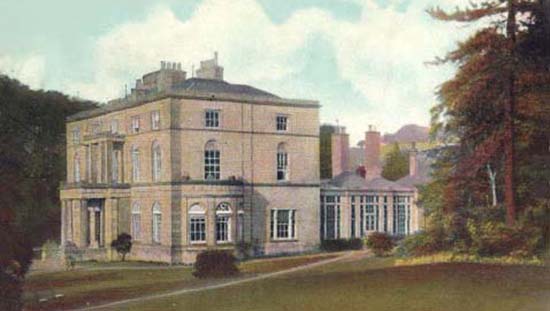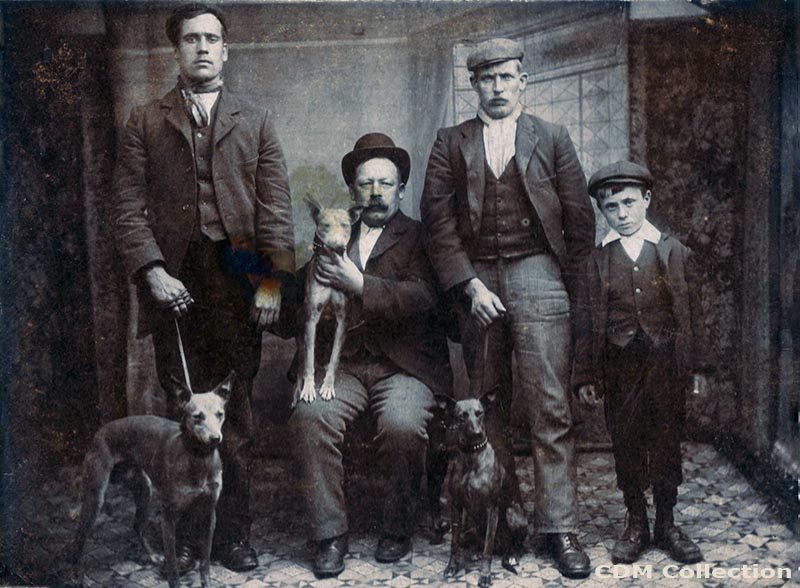
|

|
|
|
Landmarks ~
Churches ~
Pubs ~
Shops ~
Amenities ~
Dwellings ~
Events ~
Schools ~
Sports
Industrial ~ Transport ~ Folklore ~ Families
~ It's a loff ~
Tales.
The following story has been around a bit since the 1870s,
and was published in various newspapers of the time, and possibly true,
and this is virtually a verbatim account as published in 1876 including the original interpretation of
the Black Country dialect.
GOING TO BE BISHOP'D
The Bishop having held a confirmation in General, a woman in a respectable position
who had three daughters, become impressed with the necessity of being herself
and children confirmed.
She and they were therefore prepared, and ultimately confirmed. When the mother, believing herself converted, became extremely anxious to proselyte someone else. At length, after much consideration, she resolved to try her hand on Molly Stubbs, a woman who called every week with her donkey to sell 'lily white sond'.
'Well Molly,' she said,
'how bin yor?'
'Oh, tidy, missis, I bin. Never better. How bin yow?' 'All right, Molly. But I want to ax yer a question, Han you ever been confirmed? 'Lor, missis, why what's that I never heer'd on him afore.' 'Why, have the Bishop's hond on yer yed. Becos, if yer dow, you'r bound to go to hell.' 'You dow say so dun yer and whatever's a Bishop?' 'Why, a mon preaches on a tub at church on a Sunday and wears great big lawn sleeves.' 'Good gracious, missus, I never heerd talk of such a thing afore. But what's he put his bonds on yer head for?' 'Why, to convert yer, to be sure, and take yer to heaven.' 'Well, that's an easy way o doin on it, and I wish he put his honds on my yed. But how bin going to have it done ?' 'I dow know, without yow goo to Dr. Brown's the Vicar of Dudley, praps he'll dew it as well as the Bishop.' 'Dun yer think so? Then domm'd if I dew goo, and get him tew do it. I wants to go to heaven, I does, as well as anybody else.'
Accordingly, on the following Monday, Molly put on her best bonnet and
dressed herself in what she called her Sunday Shoot and walked to Dudley, calling at Dr. Brown's and knocked loudly at the door, and said...
'Is the doctor a-whurm?' 'He is', said the servant. 'Do you wish to see him ?' 'I course I does; I come on purpose.' The servant then bade her walk into the library, and she would fetch the doctor.
'Good morning, my good woman,' said the vicar.
'Good marning. Bin yow the mon what Bishops the women? cos if yow bin, I'm come to be bishop'd.' 'You mean confirmed, I suppose,' said the vicar. 'Ah; I mean confirmed, or bishop'd or whatever yer calls it. Honds on yor yed yer know.' 'Yes. I see; but it is first necessary that you should be examined.' 'Now, none o that, Mr. Vicar, I'm quite well, and I don't want no physic, and what's more I hain't a going to ha' none.' 'Oh!, I mean by examining, asking you a few questions.' 'Oh, dun yer? then why day yow say so at fust; you can ax as mony questions as yown a mind, and I con answer um.' 'I am pleased to hear it' returned the Vicar
'Now how many commandments are there?', said the Vicar.
'Why three to be sure. You know that dow yer?' 'No, indeed, I do not, my good woman, I always thought there were ten.' 'Then yow oughten to ha known better nor that, for yown been a parson in Dudley to my knowledge a good many years, ha yer?' 'Oh yes, you are quite right; but that's nothing to do with it. I must tell you there are ten commandments.' 'Then I tell yow it isn't the truth, for I've liven at Gornal five and forty years, and I say there is but three, and I ought to know'. 'Well, well,' replied the doctor, laughing, 'perhaps you will tell me what they are.' 'Course I ull if yow dow know. Why they'm Aistor, Wissuntide, and Sedgley Wake.'
It is needless to add that the astonished vicar did not recommend his
ignorant visitor to the bishop for the next Confirmation.
Dr. Browne, was indeed the Vicar of St. Thomas's (Top Church) Dudley in the mid-ninteenth Century.
~
Something snipped from the newspaper, the Birmingham Weekly Post from 1955,
tells a tale of the rather thrifty 'Salt People' of Ruiton.
Gornal Legends. MANY and varied, and mostly completely apocryphal, are the tales told about Gornal people, and their wit or dullness, but the following one is vouched for in its truth by the father of Mr. Jack Williams, the well known Dudley tailor. His father, many years ago, was standing on the doorstep of his shop when he was hailed by the biggest Gornal salt-seller he had ever seen. The man stood well over six feet in height, and weighed more than 17 stone. He wanted a red waistcoat-a favourite piece of garb of those days complete with brass buttons. After some haggling a price of 17s. 6d, was agreed on; the man paid 2s. 6d. deposit and promised to return in a week. The waistcoat was made, but the man never reappeared, and many weeks later a little wizened salt-seller, from the same district, approached Mr. Williams and asked him if he had a red waistcoat to fit him. Not having one ready-made, and the man refusing to have one made to measure, Mr. Williams eventually sold him the large scale red waistcoat for ls. 6d. to "cut his losses." A week later Mr. Williams saw the large man, complete with red waistcoat, and the small man jovially entering a local hostelry arm in arm! ~
|
|
|




